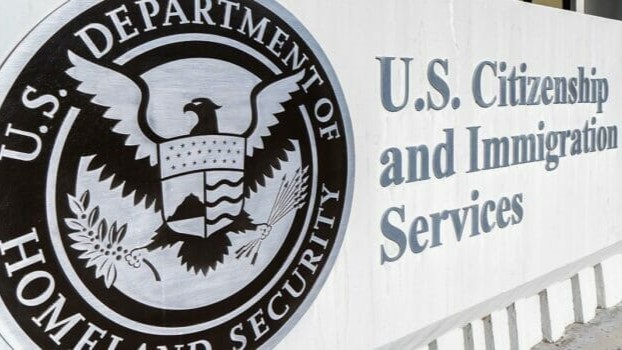The USCIS fee schedule explains filing costs for green cards, citizenship, spouse sponsorship, and more. Learn how much U.S. immigration really costs, how to pay, and what extra expenses to expect.

Let’s be honest: few parts of immigration are more stressful than the money. We’ve spoken with people at Beyond Border who’ve spent weeks gathering forms, photos, and evidence, only to have their case bounced back because the check was wrong. Imagine that, months of effort stopped over a payment detail.
That’s why the USCIS fee schedule matters. It’s not just a list of prices. It’s the gatekeeper. If the fee isn’t right, nothing else moves forward. And in 2025, the updates are bigger than usual, which makes it even more important to stay informed.
Think of this guide as a conversation, like if you asked us over coffee, “Hey, how much does it really cost to file immigration papers?”
The official USCIS fee schedule is found in Form G-1055. It’s the master chart that shows the “fee per application” for each form. Some are under $200, others over $1,000.
The frustrating part? USCIS doesn’t send reminders. You’re expected to know the current fee. Pay even a few dollars short, and your packet usually comes back. We’ve seen people lose months just because they copied an outdated blog post.
Why do the fees keep changing? Running immigration offices costs money, staff salaries, background checks, biometrics. When those expenses climb, USCIS raises fees. That’s why the official USCIS fee schedule page is your safest source.
So, how much are we really talking about? Here’s what some of the most common immigration filing fees look like in 2025:
Now imagine this: Priya is sponsoring her husband. She files the I-130. Then comes his I-485. That’s already $1,900 before adding work authorization or travel documents. If she also sponsors her child, another I-485 fee appears. Costs grow quickly, and that’s without professional help.
At Beyond Border, we often map out all the possible forms at once so clients don’t get blindsided halfway through.
Green cards are the most common, and the most expensive. Green card application fees are about $1,225 for most adults in 2025. Kids under 14 sometimes pay less, and renewals through Form I-90 cost $540.
That number doesn’t include medical exams, photos, or translations. Many applicants forget those extras until the last minute.
For people applying from abroad, there are also visa filing fees, usually $185 to $345 depending on the type. By the time you add everything, one green card case can easily top $2,000.
When people ask why green card fees USA seem high, that’s the answer, it’s not just one fee, it’s several.

After years with a green card, the final step is citizenship. The citizenship application fee USA in 2025 is $760. That includes biometrics, so no hidden add-ons later.
Is it worth it? Most say yes, because citizenship ends the cycle of renewals. But for a family of four, it’s still more than $3,000 in fees alone.
Some people confuse this with “investment citizenship.” Just to be clear: naturalization doesn’t require financial investment, only time and eligibility. The only U.S. program tied to investment is the EB-5 visa, where applicants invest $800,000 or more.
So if you’re filing the citizens application fee, it’s just paperwork and payment—not millions in investment.
Payment sounds easy, but it’s one of the most common reasons cases get rejected. Here’s how USCIS filing fee payment works:
We once had a client who wrote “USDHS” on their check. USCIS rejected the entire packet. Another paid an amount listed in an old article, off by $15. Their green card application sat in limbo for weeks.
It’s small mistakes like these that make the USCIS fee schedule so important.
If you’re sponsoring a spouse, you’ll pay for both the I-130 petition and the I-485. Together, that’s around $1,760 in 2025. Add children, and each one needs their own green card form.
Picture Ravi sponsoring his wife and two kids. That’s nearly $5,000 in fees before medicals or translations. This is why people often say U.S. immigration charges are higher than in other countries.
For example, immigration fees in India are usually lower. But in the U.S., the system charges separately for each stage, so the totals grow fast.
At Beyond Border, we help families calculate this upfront so they can plan, instead of being surprised later.
The filing fee is just the starting line. Real applicants also deal with:
And then there’s professional help. Many people use attorneys or immigration forms specialists. Those fees aren’t part of the USCIS form fees, but they’re real costs.
We’ve seen total expenses reach $7,000 or more for a family. That’s why treating immigration as an “investment” rather than just paperwork often makes more sense.
Here’s a quick set of answers in plain words:
Q. How much is immigration filing fee overall?
For a spouse green card, about $1,760 in government fees.
Q. How much is the USCIS fee for citizenship?
$760 in 2025.
Q. How much does it cost to file immigration papers?
It depends, but most common cases run $500–$2,000.
Q. Where is the U.S. visa number written?
On the visa itself, usually in red in the upper corner.
Q. Why do visas get rejected?
Missing documents, financial shortfalls, or form errors.
Q. How many green cards are issued each year?
Roughly 1 million, depending on quotas.
Here’s a handy chart of USCIS form fees this year:
Always double-check against the USCIS G-1055 before you file.
It’s easy to stare at the USCIS fee schedule and think, “That’s it.” But the truth is, immigration involves more than math. It’s your future, your family, your stability.
At Beyond Border, we’ve seen clients panic over fees, only to later tell us it was worth every dollar once approval came. The costs feel heavy upfront, but they open doors to work, education, and opportunities that last a lifetime.
That’s why budgeting early and checking the latest USCIS form fees is so important. It keeps your process moving without costly setbacks.
If there’s one piece of advice we’d repeat a hundred times, it’s this: never assume you know the fee. Always confirm with the latest USCIS G-1055 fee schedule page.
We’ve seen too many cases delayed because someone used an old number. Don’t let that be you. Whether it’s a green card renewal, a citizenship application, or sponsoring your spouse, the fee is your ticket forward.
At Beyond Border, we’ve guided families, professionals, and students through these details. And we know this: once you pay the right amount and submit, the relief is instant. You’re officially in the system, moving one step closer to your new life in the United States.